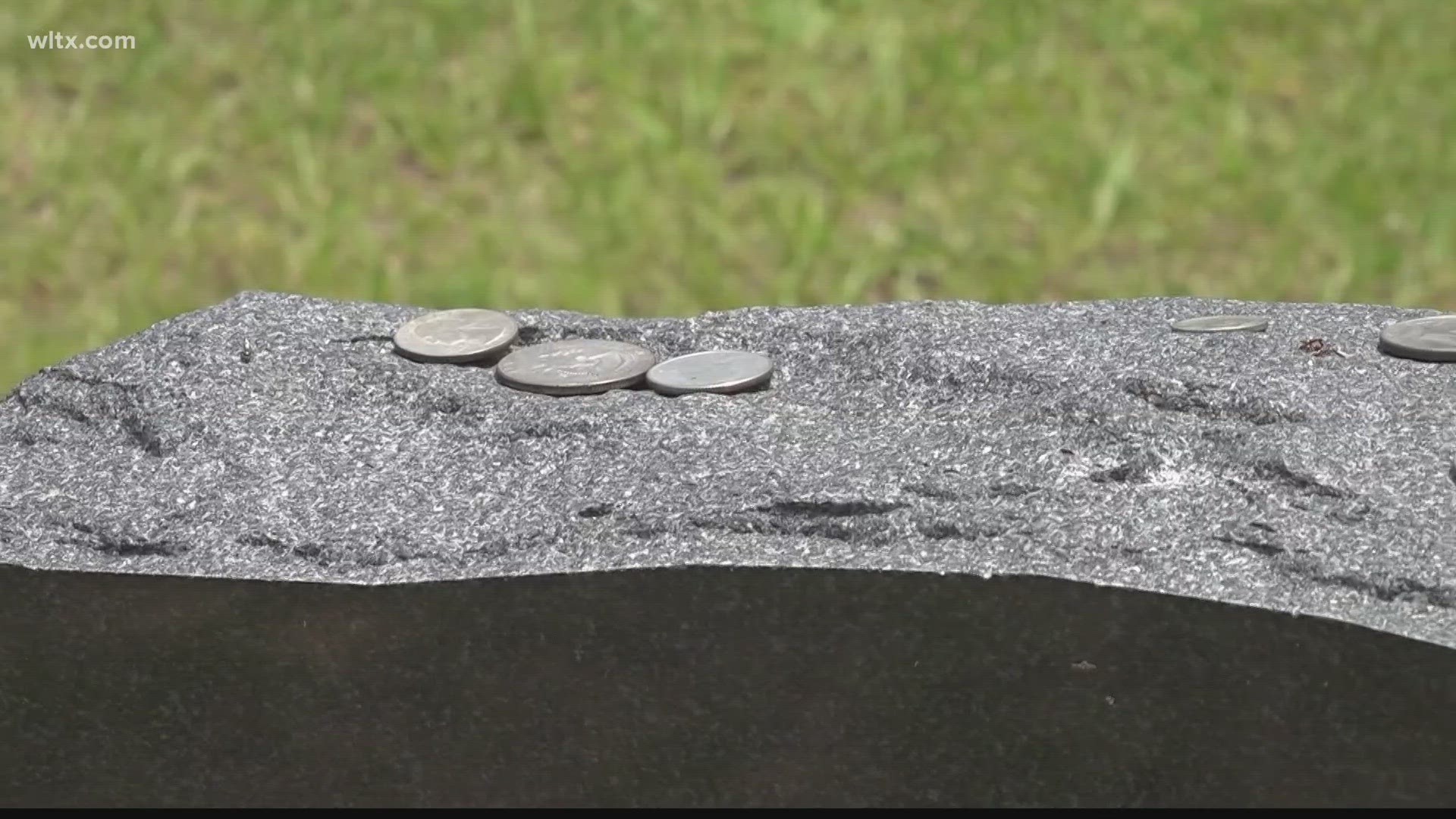SUMTER, S.C. — Leaving coins on tombstones is a tradition with an impactful meaning in the military community. Each coin represents a different message, showing families of those who have served that the graves are visited.
"Some of them have been there long enough to where they've tarnished and they've been there for years," American Legion Post 15 District Commander Peter St. Onge says.
St. Onge explains this tradition dates back thousands of years ago to the Roman empire. In the later 1900s, he says it gained popularity.
"During the Vietnam War, there was a lot of hard feelings between the ones who served in the military and the family members and stuff like that," St. Onge said. "So sometimes speaking with the family members was hard for some folks, so this was a way of saying, you know, ‘We were here,’ and then when they come back, they know somebody has been there."
Visitors choose the coin they leave based on how well they knew the service member. A penny means someone has visited the grave. A nickel means the visitor served with the service member at boot camp. A dime means the visitor and the deceased served together at some point. And a quarter means the visitor was physically with the service member when they passed away.
The Sumter Cemetery is home to more than 14,000 people, with over 3,000 veterans buried across the 45 acres. Sumter Cemetery Manager Mark Ferro says he comes across graves with coins scattered around them often.
"It is a sign of respect. Respect, loyalty, and all those, you know," Ferro shares. "Our servicemen they don't do it for the money, they do it for their country."
Ferro tells me leaving a coin is a way to show gratitude. It's a symbol St. Onge says to leave in place.
"If you do come across a headstone that has coins on there, leave them there. It's not trash. It's there for a meaning to get back to the families so when the family comes that they know that somebody who has served with that person has been there," St. Onge says. "A lot of times it gets separated by great distances. So to actually come into the town where a veteran, a friend of yours may have been there, it's a significant meeting for that person."

